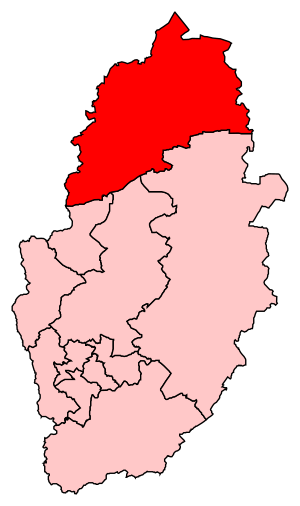Joe Ashton facts for kids
Quick facts for kids
Joe Ashton
|
|
|---|---|
| Member of Parliament for Bassetlaw |
|
| In office 31 October 1968 – 14 May 2001 |
|
| Preceded by | Frederick Bellenger |
| Succeeded by | John Mann |
| Personal details | |
| Born |
Joseph William Ashton
9 October 1933 Sheffield, West Riding of Yorkshire, England |
| Died | 30 March 2020 (aged 86) |
| Political party | Labour |
Joseph William Ashton (9 October 1933 – 30 March 2020) was a British politician. He was a member of the Labour Party. Joe Ashton was known for supporting the rights of Members of Parliament (MPs). He believed MPs should not be forced to seek re-election by their local party members.
Ashton first became an MP in a special election. He won by a very small number of votes. By the time he retired, he was winning by a much larger number of votes.
Early Life and Career
Joe Ashton was born and grew up in Sheffield, England. He went to High Storrs Grammar School and Rotherham Technical College.
Before he became an MP, he was a local politician. He served as a Sheffield City Councillor starting in 1962. A councillor helps make decisions for their local city or town.
Time in Parliament
Ashton was first elected as the Member of Parliament for Bassetlaw in 1968. This was a special election called a "by-election". It happened because the previous MP, Frederick Bellenger, had passed away.
It was a difficult election for Ashton. The government at the time, led by Harold Wilson, was not very popular. Bassetlaw had been a Labour Party seat since 1929. But Ashton won by only 740 votes, making it a "marginal seat." This means the election was very close.
One big topic during this time was the closing of coal mines. Many people in Bassetlaw worked in mining. Ashton explained that the Labour government offered good payments to miners over 55 who lost their jobs. He said this was better than what the Conservative Party had offered before.

In 1974, there were stories in the news about MPs possibly being involved in bad behavior. Ashton spoke to a Labour Party newspaper. He wanted to defend MPs and said only a very small number might be involved. This caused newspapers to ask him to name those MPs.
In 1977, Ashton wrote a novel called Grass Roots. It was about a strong steelworker who becomes an MP. The book was praised by newspapers like The Times and The Guardian. After his party lost the election in 1979, Ashton also wrote columns for the Daily Star newspaper.
Ashton saw himself as a "shop steward" for Labour MPs. This means he felt it was his job to protect their interests. Some people in the Labour Party wanted MPs to be re-selected by their local party members before every election. Ashton strongly spoke out against this idea. He argued that it would make it harder for MPs to do their jobs. He also said that too much disagreement within the party would help the Conservative Party.
Later Years and Legacy
Joe Ashton retired from Parliament in 2001. After he left, John Mann became the new MP for Bassetlaw.
In 2007, Ashton received an award called the OBE. This award recognizes people who have made a great contribution to their country.
Ashton was interviewed in 2012 for a special project about the history of Parliament. He also wrote a book about his life called Red Rose Blues, which was published in 2000.
Death
Joe Ashton passed away in March 2020 at the age of 86. He died from dementia. He is survived by his daughter, Lucy.
 | James B. Knighten |
 | Azellia White |
 | Willa Brown |


